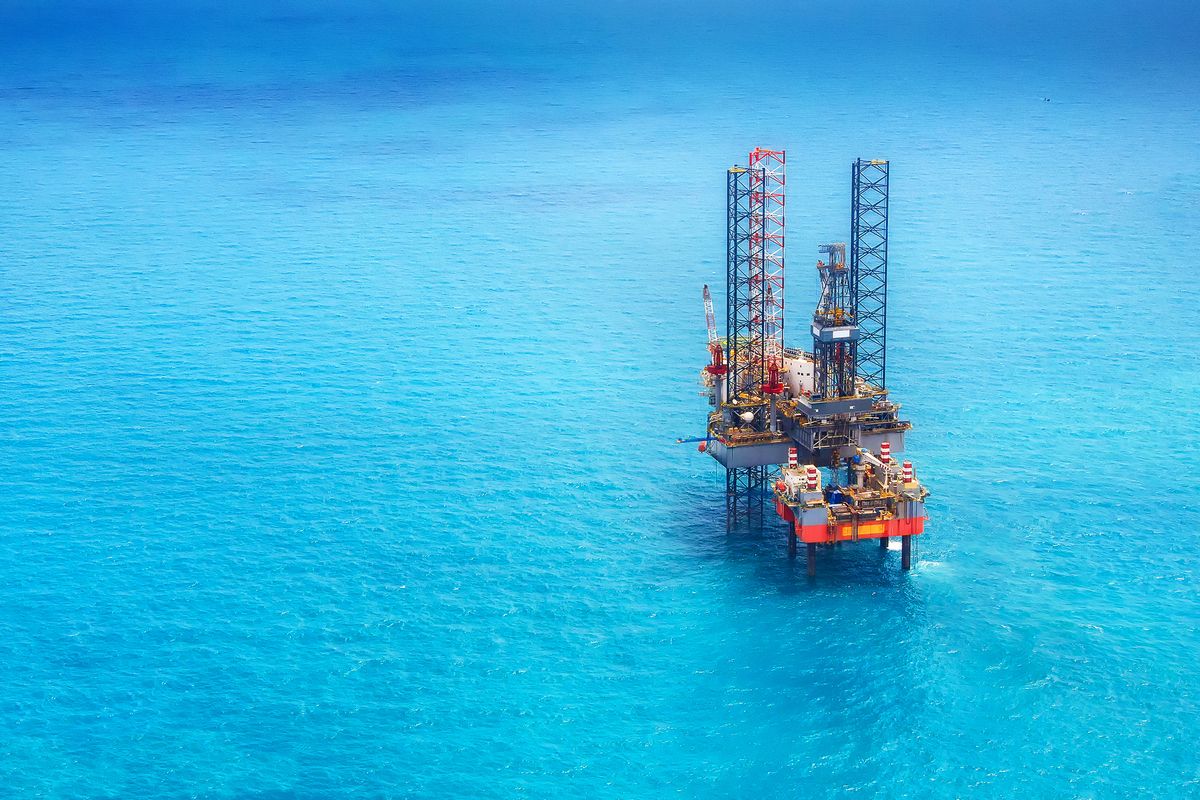There's something inherently romantic about the world's oceans, but investors can't afford to get caught up in sentiment when looking at companies like DryShips Inc. (DRYS +0.00%) and Transocean LTD (RIG +7.03%). Here's a look at each of the seaborn companies to see if either one is worth buying today.
Just don't do it
DryShips isn't a company worth owning. That statement might seem a bit harsh, even sudden, but there's a good reason I said it -- you have to trust the leaders of the companies with your hard-saved money. And that's really hard to do with DryShips. Here's a quick synopsis of the company's history.

Image source: Getty Images.
DryShips is largely a dry bulk carrier, meaning it transports things like coal and iron ore. It fell on hard times a few years back when the rates it earned were low and its leverage was high. The company worked out a deal with founder and CEO George Economou in late 2016 for a cash infusion. Following that deal, the company quickly agreed to sell new shares to a third-party investor.
Instead of working to deleverage, DryShips went on a buying spree. The new shares, meanwhile, resulted in massive dilution for existing shareholders. And since the outside investor turned around and sold the shares on the open market, the stock plummeted. DryShips enacted a series of reverse stock splits to keep the price of its shares above exchange minimums. The Motley Fool's Matthew DiLallo did the math and estimates that, taken together, all of the reverse splits at DryShips add up to a single 1 for 7,840 reverse split. That's a shocking number, and it shouldn't come as much of a surprise that the stock lost almost all of its value while this was transpiring.
That said, bulk rates picked up in 2018, and DryShips had a pretty good year financially speaking. However, the company is still doing things that should worry investors, including buying ships from its CEO. At a company with a history like this one, such related party transactions should set off alarm bells on the trust front. There's simply too much history that suggests investors aren't top of mind at DryShips to make it worth owning -- regardless of financial performance.
A little more nuance needed
Check out the latest Transocean earnings call transcript.
Transocean is an energy industry contractor focused on providing deep-water drilling services. That industry niche got hit particularly hard following the deep oil-price decline that started in mid-2014, as it led to a material pullback in capital budgets at big oil companies. With oil prices starting to recover, Transocean's business began to pick up in early 2018, and investors responded by sending the shares higher. At least until oil prices started to fall again in the back half of the year and the stock sold off.
At this point, the shares are down roughly 80% over the last five years. That's better than DryShips, but that's really not saying much. Transocean took advantage of the downturn, to some degree, by acquiring Ocean Rig UDW in late 2018, increasing the size of its fleet. Adding Ocean Rig's fleet to its own expanded Transocean's fleet to 57 (five of which are currently under construction) and added materially to its backlog of work to be completed.
Here's the thing: The difficult market conditions have left Transocean's valuation at what might appear to be a low point. For example, price to tangible book value is around 0.45 times today. And the company's backlog of roughly $13 billion, following a late 2018 contract signing with Chevron, suggests it has years of work ahead of it. That provides an important foundation for the company's long-term business success.
RIG Price to Tangible Book Value data by YCharts.
However, that low price to tangible book value is actually higher than the stock's five-year median of roughly 0.4 times, and higher than some of its key competitors. So the stock is cheap on an absolute basis, but perhaps not so cheap on a relative basis. And long-term debt increased by roughly 40% over the 18 months through the third quarter of 2018, leaving Transocean with a financial debt to equity ratio of nearly 1.4 times. That's a notable amount of leverage for a company in a cyclical industry tied to highly volatile oil prices. True, it's costly to buy and build drillships (note the $2.7 billion acquisition of Ocean Rig and its 13 ships, two being under construction), but leverage can be a dangerous tool if a downturn lingers longer than expected.
If oil prices rise, and with them demand for drilling, then Transocean will probably see a nice pick-up in its financial results and stock price. However, for most investors, there are better ways to get exposure to the energy market, including industry giants with high-yielding dividend stocks Chevron and ExxonMobil, both of which have very low levels of leverage. In other words, Transocean doesn't look like much of a buy, either.
Taking a pass
If forced to pick between DryShips and Transocean, the answer is simple: Transocean. However, neither of these stocks looks like a particularly compelling investment option today despite their very low stock prices. In fact, DryShips and Transocean both look like stocks best avoided right now since the risks don't justify buying in, even at these depressed levels.






